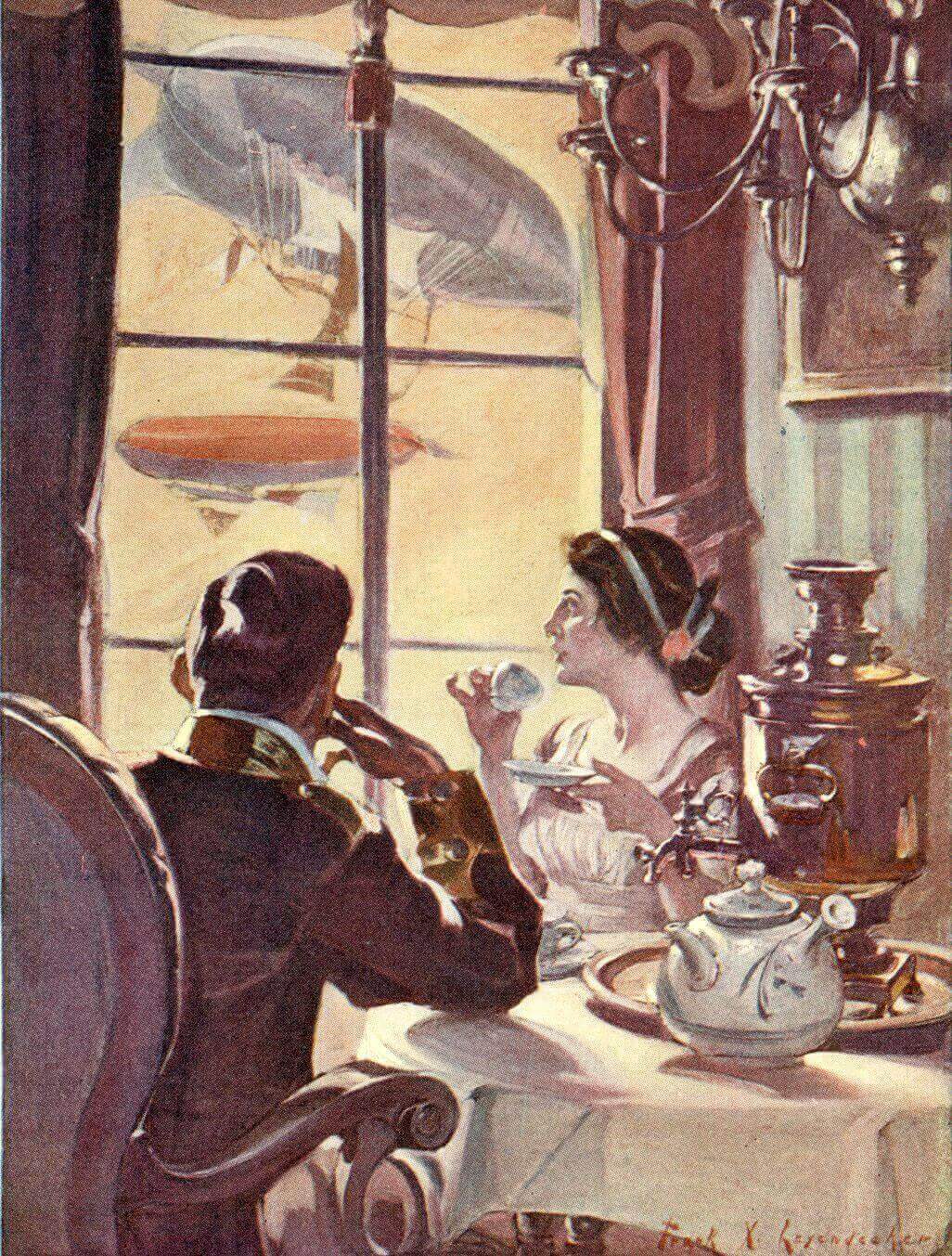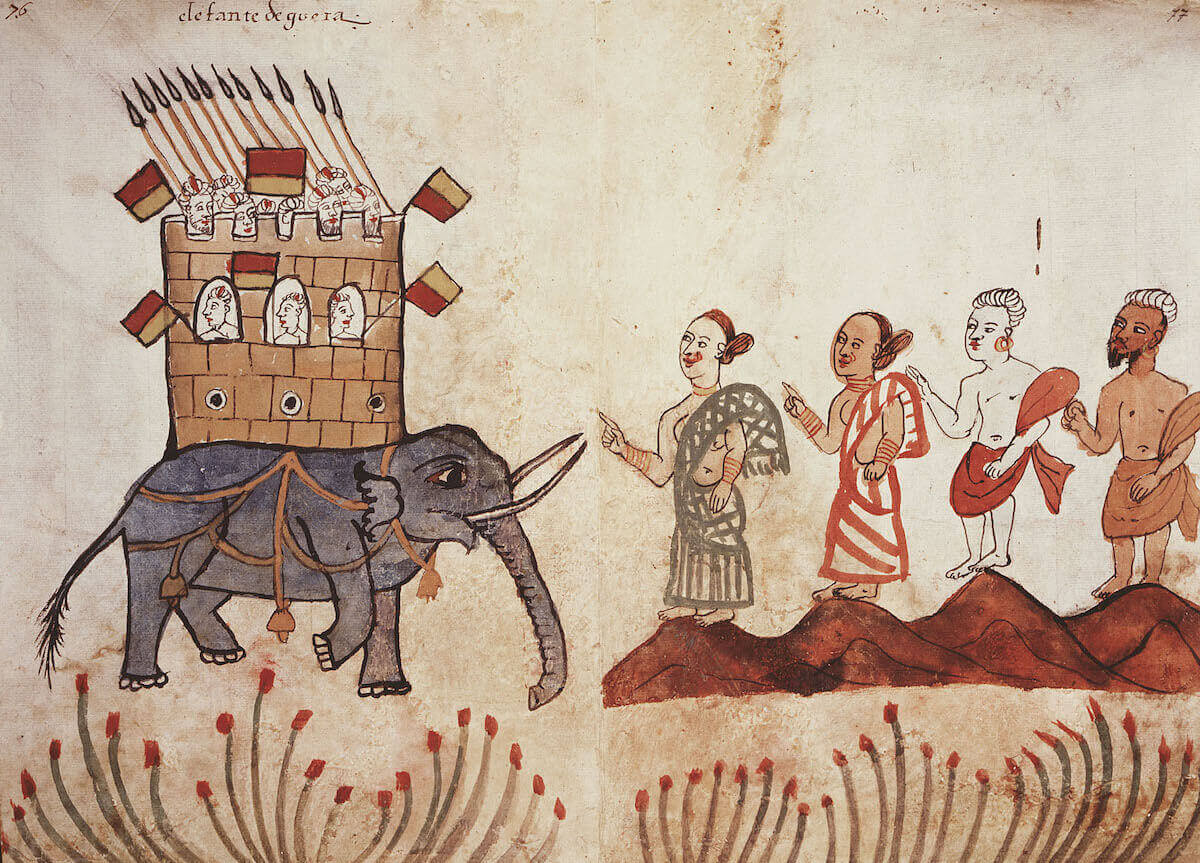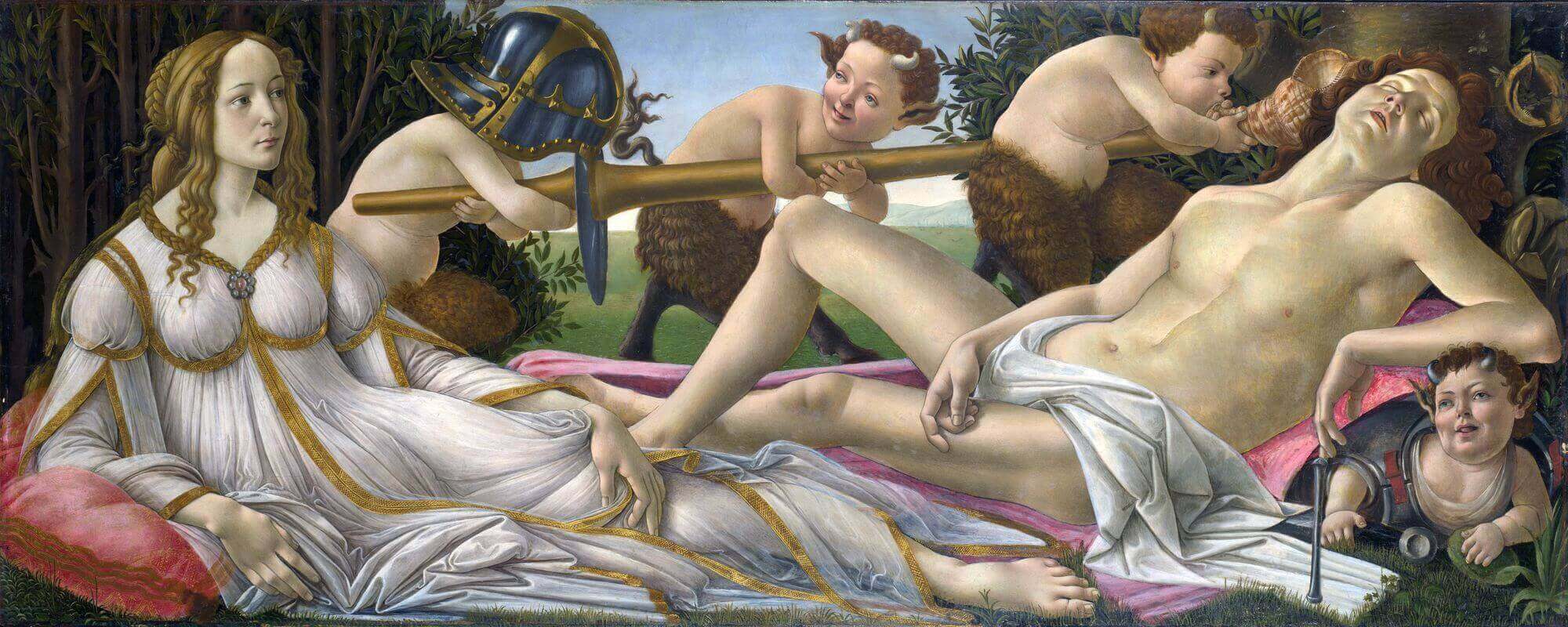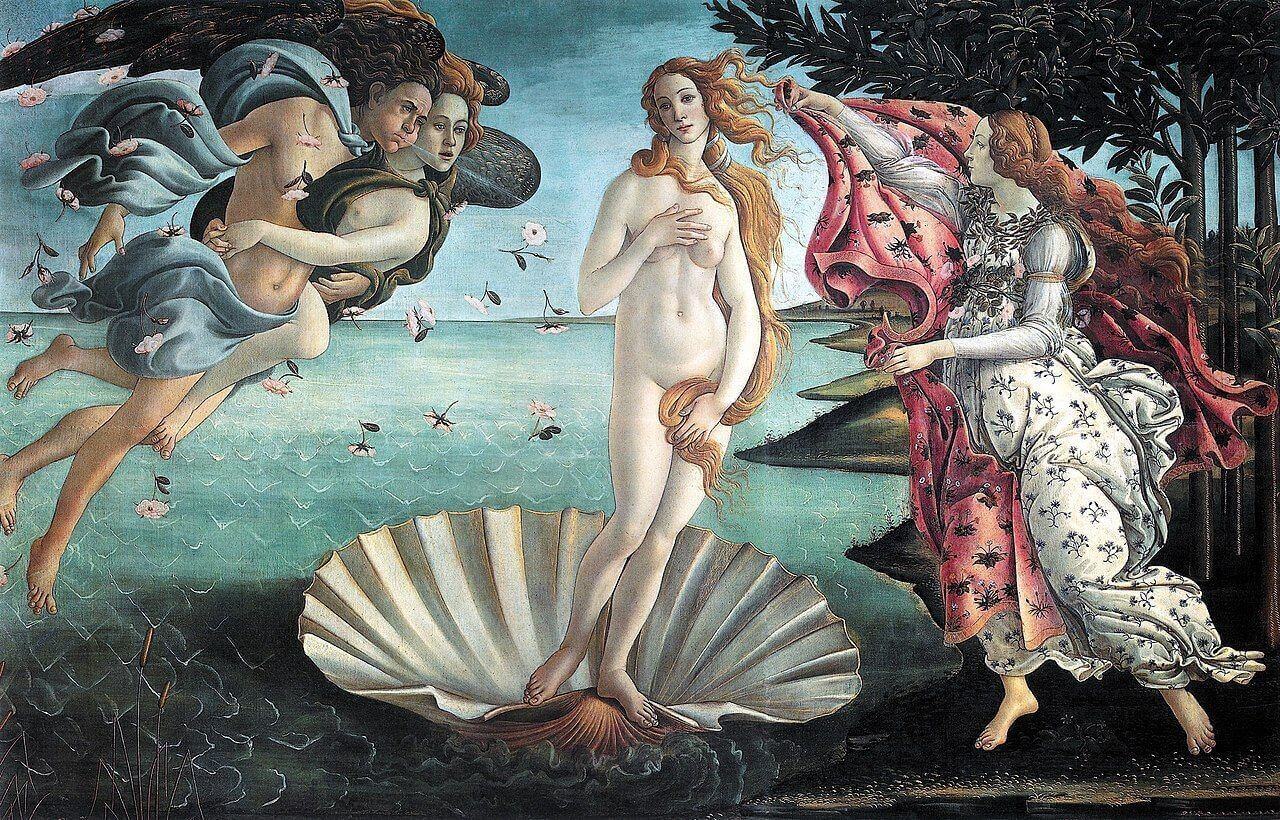Looking at the overlooked
Sometimes, the most philosophically interesting things in human life are those things that are so close to us, we overlook their importance. So in the next couple of pieces here in Looking for Wisdom, I’m going to explore one of these philosophically interesting, but often hidden, topics: and that topic is ritual.
When we hear the word “ritual”, what often comes to mind is something pretty elaborate, involving fancy outfits, the recitation of obscure texts, long robes, even longer faces, and altars fragrant with incense. And ritual may be all of these things. But it may also be something much more ordinary, something that pervades our lives in all kinds of subtle ways we often overlook, and something that for all its everydayness is also curiously magical.
A simple cup of tea
Let’s take an example. Imagine you are passing by my home, and you decide to knock on the door. It’s been a while since we’ve seen each other, so you fancy calling in. Maybe, you think, I’m not busy. Maybe we can spend a pleasant half-hour chatting about philosophy. So you knock on the door (rat-a-tat-tat), and wait for a few seconds.
I open the door and say hello. We exchange greetings. Perhaps we shake hands if you are a shaking-hands kind of friend. Perhaps we hug if our relationship is close enough for that. “Come in,” I say.
“You’re not busy?”
“No,” I lie. This is not true. I have a looming deadline, but I prefer not to be unwelcoming. “I’m writing an article about ritual and stuff,” I say. “But it can wait.” I smile reassuringly.
“Okay,” you reply. You step into the hallway and close the door behind you. I take your coat, hang it on a peg, then head off into the kitchen. You follow me down the hall. “Tea?” I ask, over my shoulder.
“Ooh,” you say (let’s imagine we are both British: when offered tea in Britain, before accepting, it is normal to say “Ooh” like this. We’re a strange people). “That would be great.”
We go into the kitchen and I turn on the kettle…
 A plate from Rudyard Kipling’s With the Night Mail by Frank Xavier Leyendecker. Public domain via Wikimedia Commons.
A plate from Rudyard Kipling’s With the Night Mail by Frank Xavier Leyendecker. Public domain via Wikimedia Commons.
The texture of everyday life
What’s going on here? It seems quite ordinary, but when you look more closely, it is also hugely complex. Think about how you knocked on the door. That friendly “rat-a-tat-tat” signals to me that you are a friendly visitor. If you were a bailiff, for example, or a would-be murderer pursuing their victim, you would perhaps signal your less friendly intentions with a more robust “knock knock knock.” Your well-chosen knock suggests a jaunty confidence, but also a reassuring friendliness-in-advance.
What happens next? We greet each other, using more or less set phrases and gestures. There’s nothing inevitable about these greetings: they are culturally determined. And the success of our greeting depends on us both knowing the rules and how to apply them. Occasionally, we misjudge: you may move in for a hug, while I put my hand out for a handshake, and may I end up poking you in the stomach. But most of the time, we manage pretty well.
Then you ask me a question: “You’re not busy?” Once again, this is a kind of ritual. You don’t want to know, factually, if I am busy or not. You want to be reassured that your visit is okay. So what do I do? I lie. I have no other choice. I may be fiendishly busy. But to say, “To be frank, I am: please leave” would be unnecessarily harsh. So I lie.
Next, because I am British, I offer you a cup of tea. Not because you are thirsty, of course. But because this is what you do to welcome guests. And in response, you emit that strange “ooh” sound, and then you accept. Again, this is not necessarily because you are thirsty. Maybe you have just had a cup of tea before turning up, and don’t want any more. Maybe what you really want is a stiff whiskey. But you accept anyway, to make me feel good. So we go into the kitchen, I turn on the kettle, and we take it from there.
The moral (in)significance of ritual
What, you might be wondering, does this have to do with philosophy?
At first glance, not very much. After all, surely these forms of etiquette are simply culturally contingent. Surely, they don’t have any great moral weight, when compared to proper grown-up moral issues like virtue, justice and so on. As the philosopher Amy Olberding points out, these kinds of shared rules and understandings,
are notoriously fallible, imperfect, and indeed perhaps sometimes arbitrary, so to treat them as binding and authoritative hardly seems moral, much less a course likely to produce truly virtuous people. [1]
Does ritual really have anything to do with ethics? Or is it just fluff? Are all these culturally determined rules morally significant? According to the Chinese philosopher Confucius (551-479 BCE), they are not only morally significant, but getting the hang of ritual is one of the most morally significant things.
Straightening your mat (or your tie)
Confucius was famously a stickler for ritual. The term in Chinese is li (禮), which can also be translated as “etiquette” or “manners.” The Chinese character is pictographic, representing an ancestral tablet and a ceremonial vessel. And Confucius was certainly concerned with elaborate rites involving ancestral tablets and ceremonial vessels; but for him, the scope of ritual was much broader than this.
According to the Analects, Confucius was someone who would not sit down without first straightening out his mat. When he attended feasts with the elderly, he waited for them to depart, and only then did he himself leave. He did not talk while in bed, and avoided lecturing others while eating. If given an abundance of food, he ate in moderation, without any excess. He was meticulous about his personal appearance, paying close attention to how he dressed, and its impact upon others. And when travelling far from home, relying on the hospitality of others, he always made sure that he turned up at the threshold of his hosts with an appropriate gift.
All of this might lead us to the conclusion that Confucius was more than a little uptight: not only over-fastidious in his habits, but also convinced that other people should be as well. But this is to do him a disservice. For Confucius, all of this extreme attention to the minutiae of everyday life was not simply about personal style. It was a powerful means of bringing about social harmony and social efficacy–in other words, achieving your moral goals, whatever these may be. As his disciple, Master You explains in the Analects,
Master You said, “When it comes to the practice of ritual, it is harmonious ease (he 和) that is to be valued. It is precisely such harmony that makes the Way of the Former Kings so beautiful. If you merely stick rigidly to ritual in all matters, great and small, there will remain that which you cannot accomplish. Yet if you know enough to value harmonious ease but try to attain it without being regulated by the rites, this will not work either. [2]
Why straighten your mat or your tie? Why think hard about what gift to bring your hosts? Why take care to defer to elderly guests? Why knock on the door in a particular way? Why offer tea to your guests? Because these things lead to social harmony, and they allow us to accomplish what we need to accomplish. Taken together, these minutiae make up a large part of the art of living alongside our fellow human beings, and we ignore them at our peril.
The musicality of ritual
However, if you care about the efficacy of ritual, you need to strike a fine balance. You need to understand the patterns and conventions, however strange they may be; but you also need to be flexible, if the situation demands. Rigidity gets you nowhere. But the same is true of foregoing a concern with ritual altogether. A ritual well-conducted may follow all kinds of mutual, tacit rules. But it also needs to be supple, and responsive to the specific situation in which we find ourselves.
This is made clear in another passage in the Analects (3.15), where we see Confucius going into the Great Ancestral Temple in the state of Lu, a religious building dedicated to the former Duke of Zhou. Like any diligent student, as the rituals in the temple unfold, Confucius keeps asking about what is going on, insatiable in his desire to know. A bystander complains that this is a sure sign of Confucius’s lack of understanding of ritual. But Confucius replies that his curiosity is itself a part of ritual. Because if you care about ritual, you have to leave room for a little slack, for improvisation, and for learning.
One way of seeing this combination of structure and flexibility is using an analogy of music. And in fact, for Confucius, music and ritual were very closely allied. “A person who is not Good—what have they to do with ritual?” Confucius asks at one point. “A person who is not Good—what have they to do with music?” [3] You could see ritual as something that regulates the mutual music of our shared lives. Like music, ritual aims to harmonise, and it does so by following regular patterns. But also, like music, it is supple, open to the possibility of improvisation and creativity.
Or perhaps, even better than music, we could see ritual as a kind of dance that we perform with each other. Through ritual, we seek out each other’s rhythm, and as we do so, we deepen our understanding of each other.
 Dancers at an Evening concert. India, Mughal period, circa 1650-70. Public domain via Wikimedia Commons.
Dancers at an Evening concert. India, Mughal period, circa 1650-70. Public domain via Wikimedia Commons.
The magic of acting “as if”
But what is going on when we engage in the strange dance of ritual? Because if ritual is omnipresent in human life, it is also quite strange. Why do we offer tea to our non-thirsty guests, or straighten our mats when a wonky mat would suffice, or shake hands, or do any of this stuff?
One answer is that when engaging in ritual, we are acting “as if” (or to put it in a more fancy way, we are acting subjunctively). When we offer tea to our guest, even though they’ve just had a cup, we are acting as if they are thirsty. We are performing concern for them. When we say we are not busy to a visitor turning up on the threshold, we are acting as if we are not busy, as if we have room for this other person in our life. And when we attend a wedding, the ritual words and gestures unfold as if this is the finest match between two human individuals in all recorded history, even if we know that it probably isn’t.
This understanding of the subjunctive (or “as if”) nature of ritual goes all the way back to Confucius. In the Analects, Confucius suggests that we should offer sacrifices to the ancestors as if (*ru/*如 in Chinese) their spirits were present. Confucius is not making a commitment to saying whether the spirits of the ancestors do or don’t exist. He is only saying that we should act as if they do.
But why should we do this? Why does acting as if matter in human life? One answer is that when we act as if something is the case, we increase the likelihood that it will become the case. Or we increase the likelihood that the things we might hope for were it the case might eventually come to pass. Acting as if allows us to accomplish things that we couldn’t accomplish if we simply relied on what actually was the case.
This is why the philosopher Herbert Fingarette, in his book The Secular as Sacred, claims that ritual has an almost magical function. Fingarette writes,
By “magic” I mean the power of a specific person to accomplish his will directly and effortless through ritual, gesture and incantation. The user of magic … simply wills the end in the proper ritual setting and with the proper ritual gesture and word; without further effort on his part, the deed is accomplished. [4]
In acting as if we are in harmony, or acting as if we are pleased to see our guest, or acting as if the happy couple are indeed made for each other, we go several steps towards bringing these as if situations into being. We magic the hoped-for world into existence. And we accomplish what we want to accomplish.
The limits of sincerity
But there’s also a problem here. After is, isn’t there something a bit unseemly, a bit insincere, about all this acting as if? Where does it leave our commitment to truth? Perhaps this is why some philosophers have had difficulty recognising the role of ritual in human life. In its seeming insincerity (or at least its non-sincerity), it seems to risk our philosophical commitment to truth.
One book that explores this tension between ritual and sincerity is the brilliant Ritual and Its Consequences: An Essay on the Limits of Sincerity, by Adam Seligman, Robert Weller, Michael Puett and Bennett Simon. The authors argue that we are always caught between the these two poles. Do we tell our friend that their outfit looks terrible (sincerity), or smile sweetly and tell them they look gorgeous (ritual)? And whatever our commitments might be, we probably can’t exist at either pole of this tension for long. We can never be wholly committed to ritual at the cost of sincerity; and we can never be wholly sincere, and turn our back on ritual.
A life of pure ritual or pure sincerity would be absurd. Both modes of thought coexist in all of us, though not without tension. From the point of view of sincerity, ritual is mere hypocrisy and convention. Viewed from ritual, however, sincerity can threaten the very existence of society by refusing its conventions. [5]
If we turn our back on ritual, even for the best moral reasons, we turn our back on the ways that ritual can bring about positive moral change. And we give up on one of the primary means that we have for bringing about the kind of society we want to live in.
Seligman and his colleagues write that “ritual encompasses the ambiguity of life much better than sincerity can.”[6] In doing so, in allowing us to encompass and navigate ambiguity, it can help shape ourselves, our social relationships, and the world of which we are a part.
But that’s a whole other story. So stay tuned for the next philosopher file on ritual, where we’ll be looking at the creative power of ritual to give shape to ourselves and our world, drawing on philosophers from Ancient China to Mesoamerica!
Notes
[1] Amy Olberding, “Etiquette: A Confucian Contribution to Moral Philosophy”, Ethics Vol. 126, No. 2 (January 2016), pp. 422-446
[2] Edward Slingerland (translator), Confucius: Analects (Hackett 2003), 1.12
[3] Analects 3.3.
[4] Herbert Fingarette, Confucius: The Secular as Sacred (Waveland 1972), p. 3
[5] Adam Seligman et al., Ritual and its Consequences: An Essay on the Limits of Sincerity (Oxford University Press 2008). p. 104
[6] ibid. p. 113
Further Reading
Books
I can’t recommend Seligman and co.’s book enough: Adam Seligman et al., Ritual and its Consequences: An Essay on the Limits of Sincerity (Oxford University Press 2008)
Herbert Fingarette’s Confucius: The Secular as Sacred is old (which dates from 1972), but very good.
I talk a lot about ritual in my new book, Hello, Stranger: How We Find Connection in a Disconnected World (Granta 2021). Get yourself a copy!
Online
Amy Olberding’s piece on the moral gravity of mere trifles is great (disclaimer: I’ve always been partial to a trifle). So too is her piece on incivility and righteousness.
The brilliant CText.org has a translation of the Analects along with the original Chinese. Check it out here.



